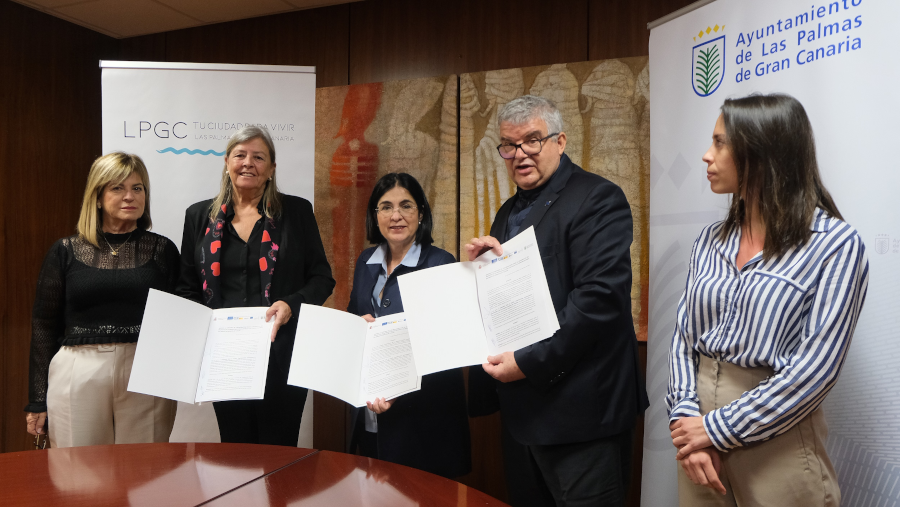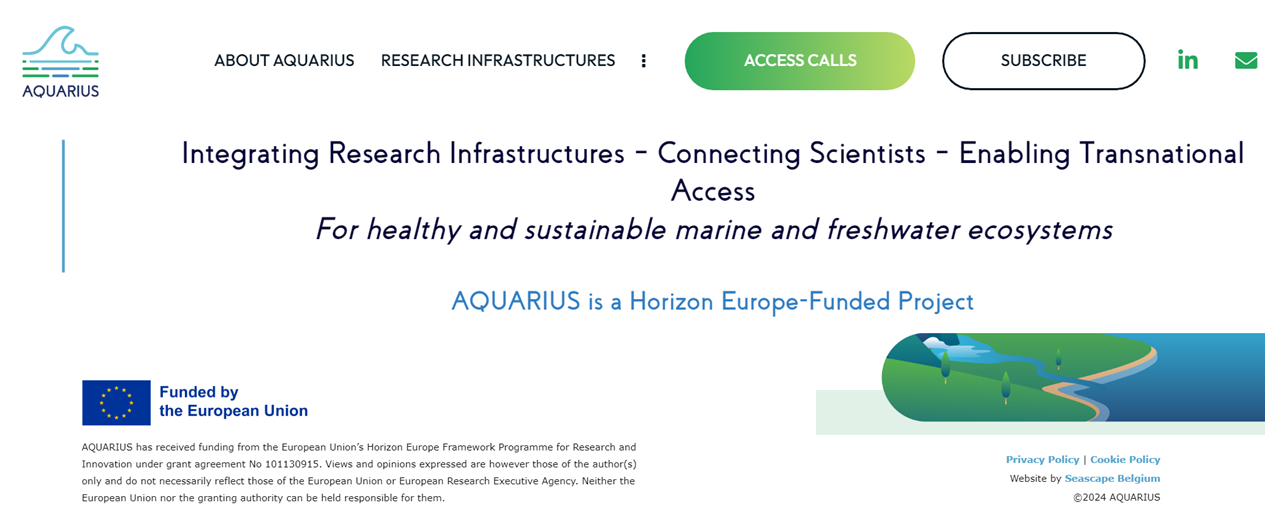Carlos García Acón, Managing Director of ESTEYCO, presented the implementation of the marine wind turbine prototype Mario Luis Romero Torrent of the ELICAN project located in PLOCAN’s Test Site using the underwater electricity grid (REDSUB). This prototype is the first in Spain and in the south of Europe with a fixed foundation. Furthermore, it is the first marine wind turbine in the world that does not need to use conventional structures during its installation.
The Government Delegate in Canarias, Salvador León, the Regional Minister of Economy, Industry, Trade and Knowledge of the Government of the Canary Islands, Pedro Ortega, the President of the Cabildo (Island Government) of Gran Canaria, Antonio Morales, and the President of the association Círculo de Empresarios of Gran Canaria, Mario Romero, attended the presentation.
The ELICAN project, supported by the European Union’s Horizon 2020 research and innovation programme, consists of the implementation of a deep water substructure prototype supporting Adwen’s 5MW offshore wind turbine using the ELISA technology for offshore substructures. The project has been executed by the ELICAN Consortium, led by ESTEYCO, with the collaboration of SIEMENS-GAMESA, ALE HEAVYLIFT, DEWI GmbH, and PLOCAN.
The ELISA technology from ESTEYCO allows to develop this revolutionary substructure which consists of an integrated self-installing precast concrete telescopic tower and foundation that allows for cranefree offshore installation of the complete substructure and wind turbine, thus overcoming the constraints imposed by the dependence on heavy-lift vessels.
It allows for a full inshore preassembly of the complete system, which is key to generate a highly industrialized low-cost manufacturing process with fast production rates and optimized risk control.
The design, construction and assembly of the prototype Mario Luis Romero Torrent started January 2016 in the Arinaga harbour (Gran Canaria) and was successfully installed in PLOCAN’s Test Site on June 2018. More than 30 companies of the Canary islands have participated in the project implementation, which correspondds to more than 80% of the investment.




